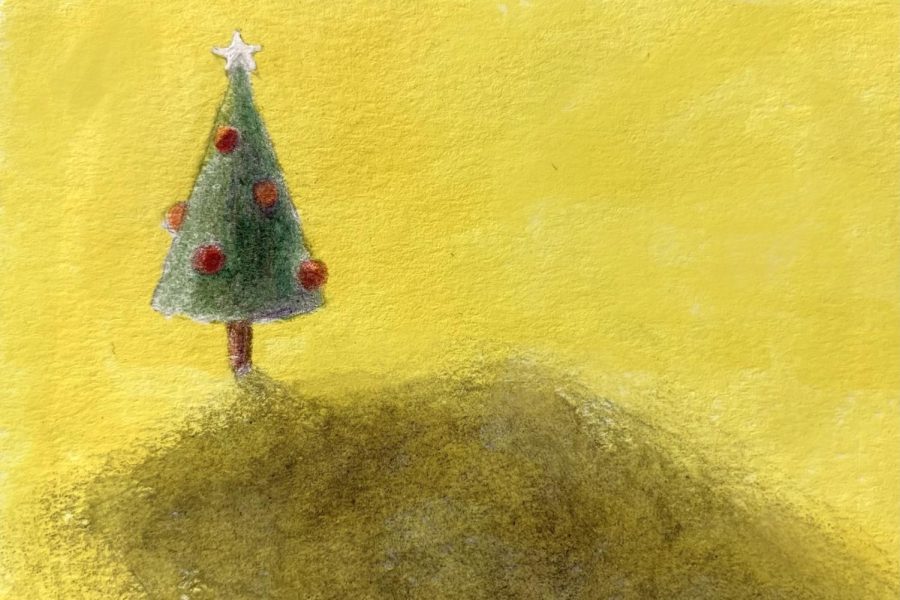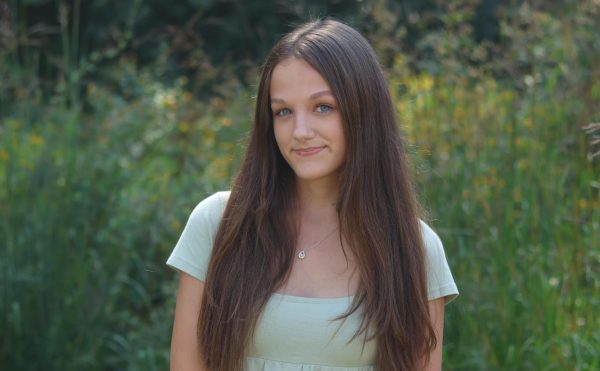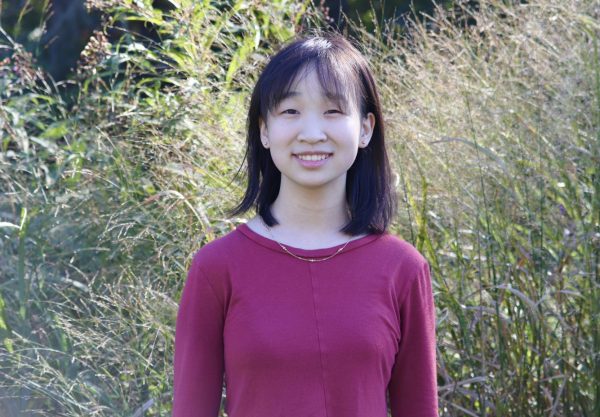Opinion: Christmas is not the only winter holiday
Credit: Alyssa Ao
WSPN’s Nadya Chase discusses the realities of Christmas overshadowing other important winter holidays.
December 22, 2022
The holiday season is undoubtedly my favorite time of the year. However, as a full-time student and celebrant of Hanukkah, Christmas and New Years, it’s exhausting to try to celebrate each holiday in an equally meaningful way. While Hanukkah, Christmas and New Years are all extremely important to me, there’s no denying that Christmas takes center stage in the media and in society.
For my mom’s Russian and Jewish side of the family, Hanukkah is one of the most important holidays of the entire year because of the history of antisemitism in Russia. While my mom lived in Russia for the first 18 years of her life, her family wasn’t able to openly celebrate Hanukkah out of fear of being targeted for being Jewish. My mom, grandma and uncle used to secretly and fearfully light the menorah each night of Hanukkah in Russia, as they felt it was wrong to ignore their religion.
Now that they live in the United States and are able to freely express their religion, my mom and grandma go all out for Hanukkah. Each year, my mom makes latkes for us on the first night of Hanukkah, and my brother and I argue about who gets to light the candles on the menorah. We play dreidel and enjoy the company of one another, and when my grandma can make it to celebrate with us, the holiday is even more special. However, because of our school schedule, we’re not even able to celebrate Hanukkah with my grandma this year.
With schoolwork ramping up in preparation for December break, I’m swamped with tests to study for, assignments to complete and plans that I cannot change. Most teachers haven’t seemed to care that it’s Hanukkah, and I have been assigned mountains of homework and multiple tests each day of the holiday. I’m forced to choose between staying on top of my school work and feeling prepared for upcoming quizzes or celebrating an important holiday for my family.
Don’t get me wrong, I love Christmas and am grateful for the holiday break we get, but how is it fair that we have an entire week or two off for Christmas, yet during Hanukkah, the same courtesy isn’t extended? Students who celebrate Christmas don’t have to make the decision between studying or celebrating, while students who celebrate Hanukkah do. Schools need to be more accommodating to people celebrating Hanukkah, as they clearly don’t have the same amount of time as students who are not celebrating.
New Years is another holiday I celebrate, but in a way that isn’t typical to how people in the United States normally celebrate it, with a glass of champagne and eating lavish foods. New Years is the Russian Christmas, and it is another piece of culture that’s been an important part of my upbringing.
Each New Year, my family and I get together with our Russian family friends or Russian grandparents. We play typical Russian games, wear the colors of the New Year for good luck and the younger children share their holiday wish lists with Ded Moroz and Snegurochka, Russian Santa Claus and his granddaughter. These traditions have been a highlight of each New Year I’ve celebrated, but, like Hanukkah, they have often been overshadowed by the overkill Christmas spirit exhibited by society.
Celebrating Christmas is socially acceptable, however, celebrating winter holidays other than Christmas is not. I love Christmas, but I also love Hanukkah and New Years. I wish that I, as well as any other student who celebrates another winter holiday, would get the same opportunities to celebrate their holiday as a person who celebrates Christmas would.
We, as a society, need to move past the blank assumption that everyone celebrates Christmas. Instead of wishing people a “Merry Christmas” during the holiday season, we should all work on saying “happy holidays” instead. It may seem like just a simple change of phrase, but to someone on the receiving end who is so used to hearing “Merry Christmas” over and over again, it can make such a meaningful difference.





![Last Wednesday, the Wayland School Committee gathered to discuss a number of topics regarding the health curriculum and Innovation Career Pathway course. Another large topic of conversation was the ways to potentially mitigate distracting cell phone usage. "These [phones] are going to distract your learning and social relationships," Superintendent David Fleishman said. "That's concrete right there."](https://waylandstudentpress.com/wp-content/uploads/2025/06/Screenshot-2025-06-04-at-9.49.31 PM-1200x886.png)



























![Troy Hoyt finishes the Boston Marathon, running for the Hoyt Foundation. T. Hoyt is the son of Hoyt Foundation CEO Russ Hoyt.
“[Running a marathon] might seem like a big thing, when it’s presented to you at first, but if you break it up and just keep telling yourself, “Yes, you can,” you can start chipping away at it. And before you know it, you’ll be running the whole 26 miles, and you won’t even think twice about it.” T. Hoyt said.](https://waylandstudentpress.com/wp-content/uploads/2025/04/C36E8761-1CBB-452E-9DF2-543EF7B1095E_1_105_c.jpeg)














































